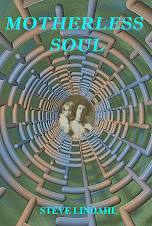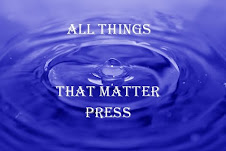 To the Lighthouse by Virginia Woolf
To the Lighthouse by Virginia WoolfMy rating: 4 of 5 stars
To the Lighthouse is a slow read with a focus on what is in the characters' thoughts rather than the plot. There is little dialogue, so what we read is mostly observations about the world around these people and what they think of each other. These observations build a picture of Virginia Woolf's world. Here's a quote from one of those characters, Lily Briscoe, which seems to state what I am saying:
And, what was even more exciting, she felt, too, as she saw Mr. Ramsay bearing down and retreating, and Mrs. Ramsay sitting with James in the window and the cloud moving and the tree bending, how life, from being made up of little separate incidents which one lived one by one, became curled and whole like a wave which bore one up with it and threw one down with it, there, with a dash on the beach.
Lily Briscoe was my favorite character. She's a friend rather than a part of the Ramsay family and also an artist, who observes life as part of the process of working on her painting. The novel was written in 1927. I cringed at a description of Lily as having “Chinese eyes,” but believe that bit of racism was part of the time. The feelings concerning the limitations of women were also part of that era, something which Woolf seemed to point out in selections such as the next example.:
Lily Briscoe knew all that. Sitting opposite him, could she not see, as in an X-ray photograph, the ribs and thigh bones of the young man's desire to impress himself, lying dark in the mist of his flesh – that thin mist which convention had laid over his burning desire to break into the conversation? But, she thought, screwing up her Chinese eyes, and remembering how he sneered at women, “can't paint, can't write,” why should I help him to relieve himself?
The stream-of-consciousness style requires readers to concentrate on individual words and phrases the way reading poetry does. Many of the basic rules of writing are broken. Here's an example where Woolf moves the point of view from Mr. Ramsay to Cam Ramsay by having him think about what she would think then progressing into her actual thoughts, all within one paragraph.
Well, if Cam would not answer him, he would not bother her, Mr. Ramsay decided, feeling in his pocket for a book. But she would answer him; she wished, passionately, to move some obstacle that lay upon her tongue and to say, Oh, yes, Frisk. She wanted even to say, Was that the dog that found its way over the moor alone?
I have to say that I doubt I would have finished this book if I hadn't known its status. It's not a novel that carries a reader forward, but so many of its phrases and thoughts present important perspectives. For that reason it's a very quotable book. I wouldn't suggest taking it to the beach or reading it in a sailboat the way Mr. Ramsay does with the book he's reading, but it is a valuable book to read at a time and place where it is possible to concentrate on the words.
Steve Lindahl – author of Motherless Soul and White Horse Regressions
View all my reviews






